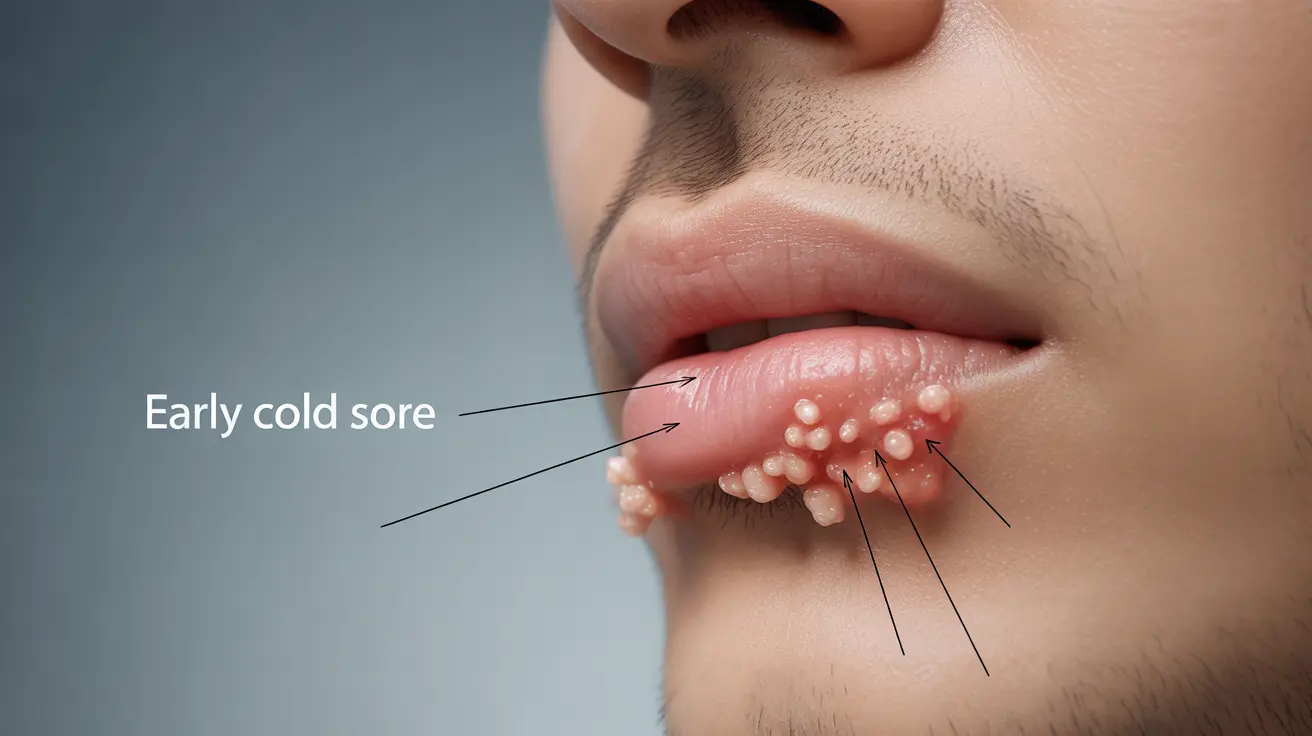Cold sores can be uncomfortable and embarrassing, but catching them early can make a significant difference in their severity and duration. Understanding how to stop a cold sore at the first sign of symptoms can help you manage outbreaks more effectively and minimize their impact on your daily life.
This comprehensive guide will walk you through the early warning signs, proven treatments, and prevention strategies to help you take control of cold sore outbreaks before they fully develop.
Recognizing Early Warning Signs
The key to stopping a cold sore is identifying it during the prodromal stage – the earliest phase before the blister appears. Common early symptoms include:
- Tingling or burning sensation
- Mild itching or irritation
- Slight redness or swelling
- Increased sensitivity in the affected area
When you notice these signs, typically around your lips or mouth, it's crucial to act quickly. The sooner you begin treatment, the better chance you have of minimizing the outbreak's severity.
Immediate Actions to Take
As soon as you detect early warning signs, implement these immediate interventions:
- Apply an antiviral cream or medication
- Keep the area clean and dry
- Apply ice to reduce inflammation
- Avoid touching or irritating the affected area
- Start taking oral antiviral medication if prescribed
Medical Treatment Options
Prescription Medications
Several prescription treatments can effectively stop cold sores from progressing:
- Acyclovir (Zovirax)
- Valacyclovir (Valtrex)
- Famciclovir (Famvir)
- Penciclovir (Denavir)
These medications work best when started within 24 hours of initial symptoms. Consult your healthcare provider about which option is most suitable for you.
Over-the-Counter Solutions
Various OTC treatments can help manage symptoms and speed healing:
- Docosanol cream (Abreva)
- Benzyl alcohol gel
- Pain-relieving creams or gels
- Zinc oxide or zinc sulfate creams
Natural Remedies and Home Care
Several natural approaches may help support healing:
- Applying cold compresses
- Using lysine supplements
- Applying aloe vera gel
- Taking vitamin C and E supplements
- Using tea tree oil (diluted)
Preventing Spread and Future Outbreaks
To minimize transmission and reduce recurrence:
- Wash hands frequently
- Avoid touching or scratching the affected area
- Use separate towels and personal items
- Replace toothbrushes after outbreaks
- Avoid sharing drinks or utensils
- Maintain good overall health and manage stress
Lifestyle Modifications
Make these changes to reduce outbreak frequency:
- Protect your lips from sun exposure
- Manage stress through relaxation techniques
- Maintain a healthy sleep schedule
- Boost immune system through proper nutrition
- Avoid known triggers (stress, excessive sun, illness)
Frequently Asked Questions
What are the earliest signs of a cold sore and how can I stop it before it develops?
The earliest signs include tingling, burning, or itching around the lips. Apply antiviral medication immediately and keep the area clean and dry to potentially prevent full development.
What treatments are most effective to shorten the duration of a cold sore outbreak?
Prescription antiviral medications like acyclovir or valacyclovir are most effective, especially when started within 24 hours of initial symptoms. OTC treatments containing docosanol can also help reduce healing time.
Are there natural home remedies that can help heal or relieve cold sores faster?
Yes, natural remedies like lysine supplements, cold compresses, aloe vera, and vitamin C can support healing. However, these should complement, not replace, conventional treatments.
How can I prevent cold sores from spreading to others or to other parts of my body?
Practice good hygiene, avoid touching the affected area, use separate personal items, and wash hands frequently. Don't share items that contact your mouth during an outbreak.
What lifestyle changes or precautions can reduce the risk of frequent cold sore outbreaks?
Manage stress, protect your lips from sun exposure, maintain good sleep habits, eat a balanced diet, and avoid known triggers. Strengthening your immune system through healthy lifestyle choices can help reduce outbreak frequency.




